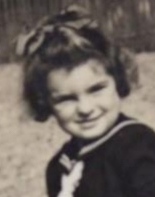I had a lot of regrets about the confiscation of animals, animals were like family members

Stáhnout obrázek
Jaromíra Jankovská, née Václavíčková, was born on 6 June 1953 in the village of Jelen near Kolín. During collectivisation, the cattle had to be given to the unified agricultural cooperative (JZD), which she felt strongly as a child. In 1969, her cousin emigrated to the West and because of this she had problems being admitted to university after graduation. She married in 1973 and had three children. After her maternity leave, she worked at Jednota in Veletov and later at the lock in Týnec nad Labem. After 1989 she served as mayor of Veletov. In 2023 she was living in Veletov.







